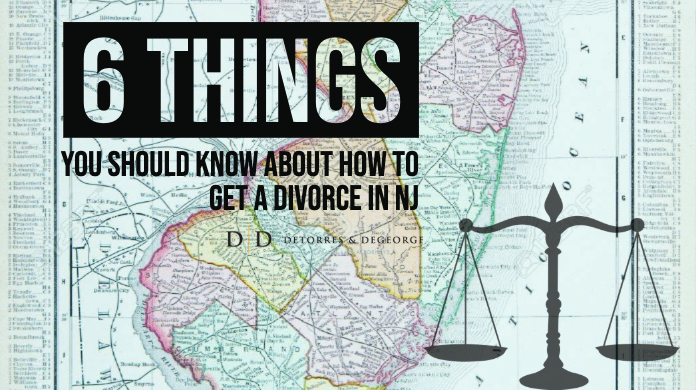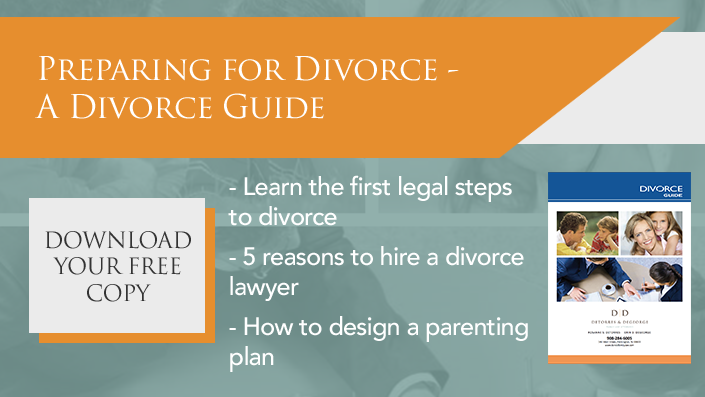 If all you know about divorce is what you’ve heard from friends and family who have gone through the process themselves, you may be looking for some clarification of the details. There are a lot of misconceptions about divorce in New Jersey. Each state has their own respective laws and there may or may not be overlap between them. Here are six things you should know about divorce in New Jersey.
If all you know about divorce is what you’ve heard from friends and family who have gone through the process themselves, you may be looking for some clarification of the details. There are a lot of misconceptions about divorce in New Jersey. Each state has their own respective laws and there may or may not be overlap between them. Here are six things you should know about divorce in New Jersey.
1. There is no such thing as legal separation in New Jersey
Some states have what’s known as legal separation, but New Jersey is not one of those states. That’s not to say that you can’t live separately from your spouse without going through a divorce. But there is not a legal document that supports this in New Jersey. The closest thing to legal separation under New Jersey law is a divorce from bed and board. Under this scenario, the parties go through the same process as a normal divorce. They negotiate a settlement agreement that provides for the custody and care of the children, child support, alimony and equitable distribution.
However, at the end of the divorce, a final judgment of divorce from bed and board is entered, rather than the standard divorce decree. While all of the financial decisions have been made and the assets and liabilities have been divided, the legal marital relationship continues. Some employers allow their employees to continue to provide health insurance for the spouse because the marital relationship remains. However, this is not always the case, so you should speak to your benefits provider in the event you are considering this option.
2. You can get divorced even if the other person ignores the complaint
If your spouse does not want to participate in divorce proceedings and refuses to acknowledge the complaint for divorce, you can still get divorced. You will file your complaint as normal and serve your spouse with the complaint. Once they are served, they have 35 days in which to file an answer or appearance in the matter. If they do not answer within this time frame, you would ask the court to enter a default against them, which means that the court acknowledges that the time to answer has run out and that you will be proceeding without the other party.
You and your attorney will prepare a proposal for the distribution of your assets and liabilities, as well as all other issues in your case. At the default hearing, you will testify about what you are proposing and explain to the judge why he or she should enter the divorce on these terms. In the event that your spouse appears at the default hearing, he or she will be permitted to cross-examine you, but they will not be permitted to offer testimony. At the conclusion of the hearing, the judge will enter the divorce.
3. Once your matter is resolved, you will be scheduled for an uncontested hearing.
Throughout the divorce process, you and your attorney will be engaging in extensive settlement negotiations with your spouse in order to reach a resolution to your matter. The terms of your agreement will be memorialized in a Marital Settlement Agreement that you and your spouse will both sign. Once your agreement is signed, you will be scheduled for an uncontested hearing. At that court appearance, you, your spouse and your respective attorneys will go before the judge and answer questions about the agreement, such as whether you entered into it voluntarily and whether you intend to be bound by the terms of the agreement. At the conclusion of the hearing, the judge will sign a final judgment of divorce and provide the parties with gold seal copies of same.
4. A final judgment of divorce terminates the other spouse’s medical insurance coverage.
When parties go through a divorce, an important thing to keep in mind is that the party who does not provide insurance coverage for the family will lose their coverage upon the entry of the final judgment of divorce. If you do not have insurance coverage independently but are employed and are eligible for benefits, this may not be an issue. However, this is an important consideration in those circumstances where one spouse may have stayed home to raise the children, or perhaps only works part-time and is not eligible for benefits at his/her employer. As medical insurance coverage can be very costly, this must be considered in negotiating a settlement agreement.
It may be necessary to increase the alimony obligation to account for the increased expense of obtaining independent insurance. One potential solution is known as a divorce from bed and board. This is an option in New Jersey that is akin to legal separation. When the parties receive a judgment of divorce from bed and board, the marital relationship remains for a period of time, but the financials have all been resolved. There is an important caveat to be aware of when considering this option, however, not all companies will acknowledge a divorce from bed and board. Therefore, before finalizing any settlement agreements, the spouse who provides coverage must check with his/her employer to determine if this is possible. Keep in mind that with a divorce from bed and board you are legally still married and therefore cannot re-marry.
5. Child support is determined pursuant to the child support guidelines.
Child support in New Jersey is established utilizing the child support guidelines. Your attorneys will enter the relevant financial information needed into the guidelines to determine what the appropriate amount of child support is in your case. There are a number of considerations in this calculation. First, the parties’ gross incomes are included in the guideline. Any alimony paid/received by the parties is also entered. A credit is also provided for the number of overnights the parties each have with the children, as well as the children’s share of medical insurance. The child support guidelines are applicable to children under the age of 19 who do not reside away at college. In some instances, where the parties’ weekly net income exceeds $3,600, the guidelines are not sufficient to support the children. Therefore, the Court or the parties will deviate up from the guidelines in order to ensure the children continue to receive the benefit of the parties’ joint incomes.
6. Alimony is based on factors, not a formula.
One of the most misunderstood aspects of family law is how alimony is calculated. In some states, there is simply a formula which is utilized. However, in New Jersey it is much more fact specific. Some of the factors that are considered include the needs of the payee vs. the ability to pay of the payor, the duration of the marriage, the marital standard of living enjoyed during the marriage, and the earning capacities of the parties. Clearly, when taking all of this into account, it is not easy to approximate what alimony might be in a particular case simply from an initial consultation.
If you have questions regarding these important factors of family law, contact the attorneys at DeTorres & DeGeorge to schedule an initial consultation today.


 START LIVE CHAT
START LIVE CHAT










